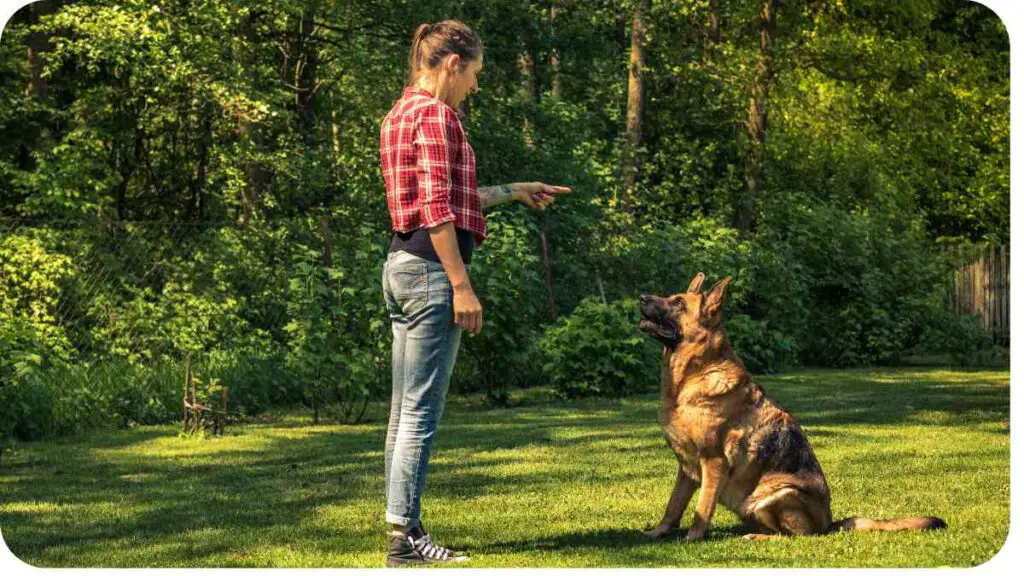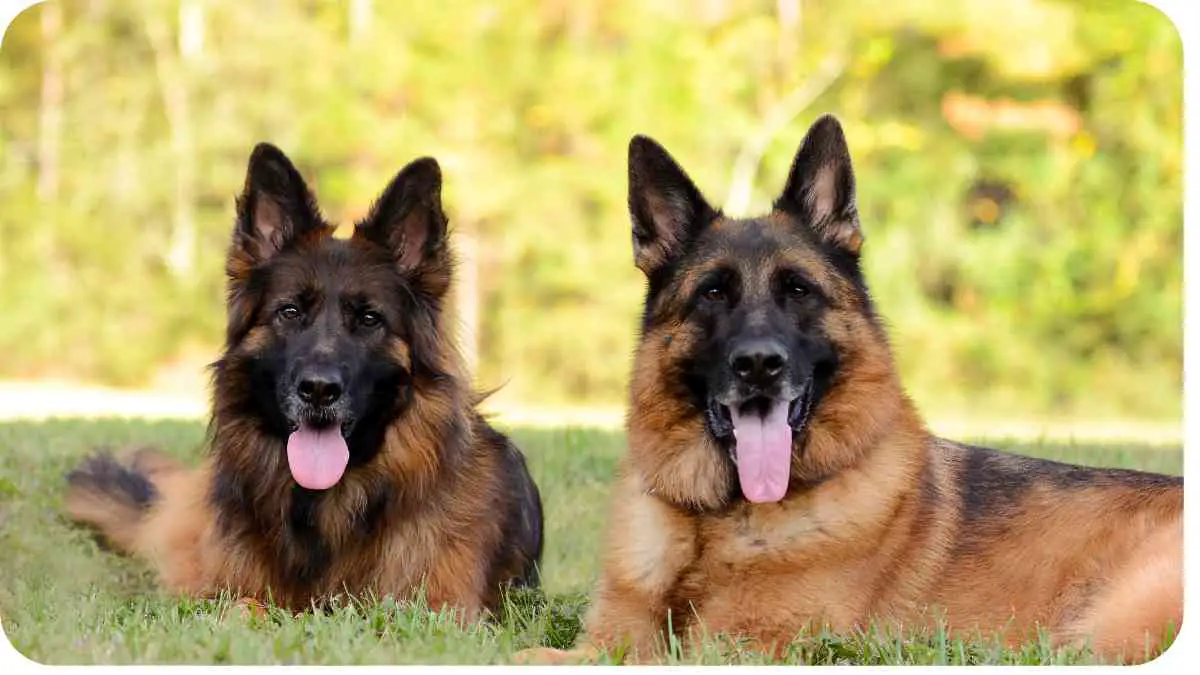German Shepherds are known for their intelligence, loyalty, and protective nature. However, like all dogs, they have sensitivities and preferences, especially when it comes to sounds in their environment. Understanding what noises German Shepherds hate can help owners create a more comfortable and stress-free living environment for their beloved pets.
| Key Takeaways |
|---|
| 1. German Shepherds have sensitivity to noise due to their keen senses and background as working dogs. |
| 2. Common noises that German Shepherds dislike include fireworks, thunderstorms, vacuum cleaners, sirens, and construction noises. |
| 3. Noise sensitivity can lead to stress, anxiety, and behavioral issues in German Shepherds if not properly managed. |
| 4. Creating a calm environment, using desensitization techniques, and seeking professional help are effective strategies for helping German Shepherds cope with noise sensitivity. |
| 5. Understanding your German Shepherd’s individual triggers and reactions is crucial in managing noise sensitivity effectively. |
Understanding German Shepherds’ Sensitivity to Noise

German Shepherds have keen senses, including acute hearing. Loud or sudden noises can startle them and cause anxiety or fear responses. This sensitivity is partly due to their background as working dogs, where they were bred for their ability to detect and respond to threats.
Understanding the growth stages of German Shepherds is crucial for their well-being. From puppyhood to adulthood, How Long Does It Take for a German Shepherd to Grow Fully? explores this journey, offering insights into their development and potential sensitivities.
Common Noises that German Shepherds Dislike
| Noise | Description |
|---|---|
| Fireworks | Loud, sudden explosions in the sky. |
| Thunderstorms | Rumbling thunder and lightning. |
| Vacuum Cleaners | Loud, mechanical noise from cleaning devices. |
| Sirens | High-pitched, continuous emergency signals. |
| Construction | Heavy machinery, drilling, and hammering. |
These noises can trigger stress responses in German Shepherds, leading to behaviors such as barking, trembling, hiding, or attempting to escape.
Effects of Noise on German Shepherds
The impact of noise on German Shepherds can vary from mild discomfort to severe anxiety. Prolonged exposure to distressing sounds can lead to behavioral issues, including aggression, destructiveness, or withdrawal. Additionally, noise-related stress can affect their physical health, leading to digestive problems, decreased appetite, or even hair loss.
Before bringing a German Shepherd into your home, it’s essential to understand the breeding process and associated costs. How Much Does Petland Charge for German Shepherds? provides valuable insights into the commercial aspect of pet ownership, ensuring informed decisions for prospective owners.
Tips to Help German Shepherds Cope with Noises

Understanding your German Shepherd’s individual triggers and reactions is crucial in managing noise sensitivity. Here are some tips to help your furry friend cope:
- Create Safe Spaces: Designate a quiet, comfortable area where your German Shepherd can retreat during noisy events. Provide blankets, toys, and treats to make it a positive environment.
- Use Background Noise: Play calming music or white noise to mask loud sounds and create a soothing atmosphere.
- Gradual Exposure: Introduce your German Shepherd to problematic noises gradually, starting at a low volume and increasing gradually as they become more comfortable.
- Positive Reinforcement: Reward calm behavior with treats, praise, and affection to reinforce positive associations with challenging noises.
- Maintain Routine: Stick to a consistent daily routine to provide stability and predictability, which can help reduce anxiety during noisy situations.
By implementing these strategies, you can help your German Shepherd feel more secure and relaxed in noisy environments. Creating a Calm Environment for Your German Shepherd
- Creating a calm environment for your German Shepherd is essential for their well-being, especially in noisy situations. Here are some additional tips to consider:
- Limit Exposure: When possible, avoid exposing your German Shepherd to excessively noisy environments. For example, if you know there will be loud construction work nearby, consider keeping them indoors or in a quieter area of your home.
- Provide Comforting Items: Offer comforting items such as a favorite blanket, toy, or chew to help distract your German Shepherd and provide a sense of security during noisy events.
- Ensure Adequate Exercise: Regular exercise can help reduce stress and anxiety in dogs. Make sure your German Shepherd gets plenty of physical activity to help them cope with noise-related stress.
- Stay Calm Yourself: Dogs can pick up on their owner’s emotions, so it’s essential to remain calm and composed during noisy situations. Your reassuring presence can help reassure your German Shepherd and minimize their anxiety.
- Consider Calming Supplements: In some cases, calming supplements or products such as pheromone diffusers or anxiety vests may help alleviate your German Shepherd’s stress during noisy events. Consult with your veterinarian to explore safe and effective options.
Ever wondered why your German Shepherd flaps its ears? This behavior may hold clues to their communication and comfort. Learn more about this intriguing habit in Why Does My German Shepherd Flap His Ears?, unraveling the mysteries of canine behavior.
Training Techniques for Noise Sensitivity
Training can play a crucial role in helping German Shepherds overcome noise sensitivity. Here are some training techniques to consider:
- Desensitization: Gradually expose your German Shepherd to the sounds they dislike in a controlled and positive manner. Start with low-volume recordings of the noise and gradually increase the intensity as your dog becomes more comfortable.
- Counterconditioning: Pair the disliked noise with something positive, such as treats or playtime, to change your German Shepherd’s emotional response to the sound. Over time, they will learn to associate the noise with positive experiences rather than fear or anxiety.
- Distraction Techniques: During noisy events, engage your German Shepherd in activities they enjoy, such as playing with a favorite toy or practicing obedience commands. This can help redirect their focus away from the noise and onto something positive.
- Professional Training: If your German Shepherd’s noise sensitivity is severe or difficult to manage on your own, consider seeking the assistance of a professional dog trainer or behaviorist. They can provide personalized guidance and support tailored to your dog’s specific needs.
Using Desensitization Methods
| Desensitization Method | Description |
| Gradual Exposure | Introduce the noise at a low volume and increase gradually. |
| Positive Reinforcement | Reward calm behavior with treats and praise. |
| Consistency | Practice regularly to reinforce positive associations. |
| Patience | Be patient and understanding during the process. |
Desensitization methods require patience and consistency but can be highly effective in helping German Shepherds overcome noise sensitivity.
The market for German Shepherd puppies varies, but understanding their worth goes beyond monetary value. Explore factors influencing pricing and breeding conditions in How Much Do Baby German Shepherds Sell For?, shedding light on their upbringing and potential exposure to environmental stimuli.
Seeking Professional Help
If your German Shepherd’s noise sensitivity persists despite your best efforts, seeking professional help may be necessary. A veterinarian or animal behaviorist can offer additional guidance and support to address your dog’s specific needs. Here are some steps to consider:
- Consult with Your Veterinarian: Schedule a visit with your veterinarian to rule out any underlying medical issues that may be contributing to your German Shepherd’s noise sensitivity. They can also provide recommendations for managing anxiety and stress.
- Referral to a Behaviorist: Your veterinarian may refer you to a certified animal behaviorist who specializes in treating noise sensitivity in dogs. A behaviorist can conduct a thorough assessment of your German Shepherd’s behavior and develop a personalized treatment plan.
- Medication Options: In some cases, medication may be prescribed to help alleviate your German Shepherd’s anxiety during noisy events. Your veterinarian can discuss the potential benefits and risks of medication and determine if it’s appropriate for your dog.
- Behavior Modification Programs: A behaviorist can implement behavior modification techniques tailored to your German Shepherd’s specific needs. This may include desensitization exercises, counterconditioning, and relaxation techniques to help your dog cope with noise-related stress.
- Ongoing Support: Working with a professional allows you to receive ongoing support and guidance as you navigate your German Shepherd’s noise sensitivity. They can monitor your dog’s progress and make adjustments to the treatment plan as needed to ensure long-term success.
Curious about why German Shepherds often prefer sleeping close to their owners? Why Do German Shepherds Sleep With Their Owners? delves into the reasons behind this behavior, highlighting their loyalty and need for security.
Conclusion
Understanding what noises German Shepherds hate and how to help them cope is essential for promoting their well-being and happiness. By identifying triggers, implementing effective strategies, and seeking professional help when needed, you can create a calm and supportive environment for your furry friend.
Remember to be patient, consistent, and compassionate as you work to address your German Shepherd’s noise sensitivity. With time and effort, you can help your dog feel more comfortable and confident in their surroundings.
If you have any questions or concerns about your German Shepherd’s noise sensitivity, don’t hesitate to reach out to your veterinarian or a certified animal behaviorist for assistance. Together, you can create a customized plan to help your dog thrive and enjoy a fulfilling life free from unnecessary stress and anxiety.
Further Reading
Here are some additional resources to explore for further information on noises that German Shepherds hate and how to help them cope:
- Top 10 Things That German Shepherds Hate Most: This article provides insights into the top 10 things that German Shepherds dislike, including noises and other triggers.
- 12 Noises That Freak Dogs Out: Discover a list of 12 common noises that can cause distress in dogs, including German Shepherds, and learn how to help your furry friend cope with them.
- 24 Things Dogs Hate: Explore a comprehensive list of 24 things that dogs, including German Shepherds, may dislike, ranging from noises to other environmental factors.
FAQs
Here are some frequently asked questions about noises that German Shepherds hate and how to help them cope:
What are the most common noises that German Shepherds dislike?
German Shepherds often dislike loud and sudden noises such as fireworks, thunderstorms, vacuum cleaners, sirens, and construction noises.
How do loud noises affect German Shepherds?
Loud noises can trigger stress and anxiety in German Shepherds, leading to behaviors such as barking, trembling, hiding, or attempting to escape.
What are some tips for helping German Shepherds cope with noises?
Creating safe spaces, using background noise, gradual exposure, positive reinforcement, and maintaining routine are some effective strategies for helping German Shepherds cope with noises.
What training techniques can be used to reduce noise sensitivity in German Shepherds?
Desensitization, counterconditioning, distraction techniques, and professional training are some training techniques that can help reduce noise sensitivity in German Shepherds.
When should I seek professional help for my German Shepherd’s noise sensitivity?
If your German Shepherd’s noise sensitivity persists despite your efforts, or if it significantly impacts their quality of life, it’s advisable to seek professional help from a veterinarian or certified animal behaviorist.

I’m Dr. Hellen James, I’ve spent my career working with dogs, and I’ve seen first-hand how important it is to understand the individual needs of each breed. I want to share my knowledge of dog breeds with you so that you can make informed decisions about which dog will be best for your household and lifestyle.

